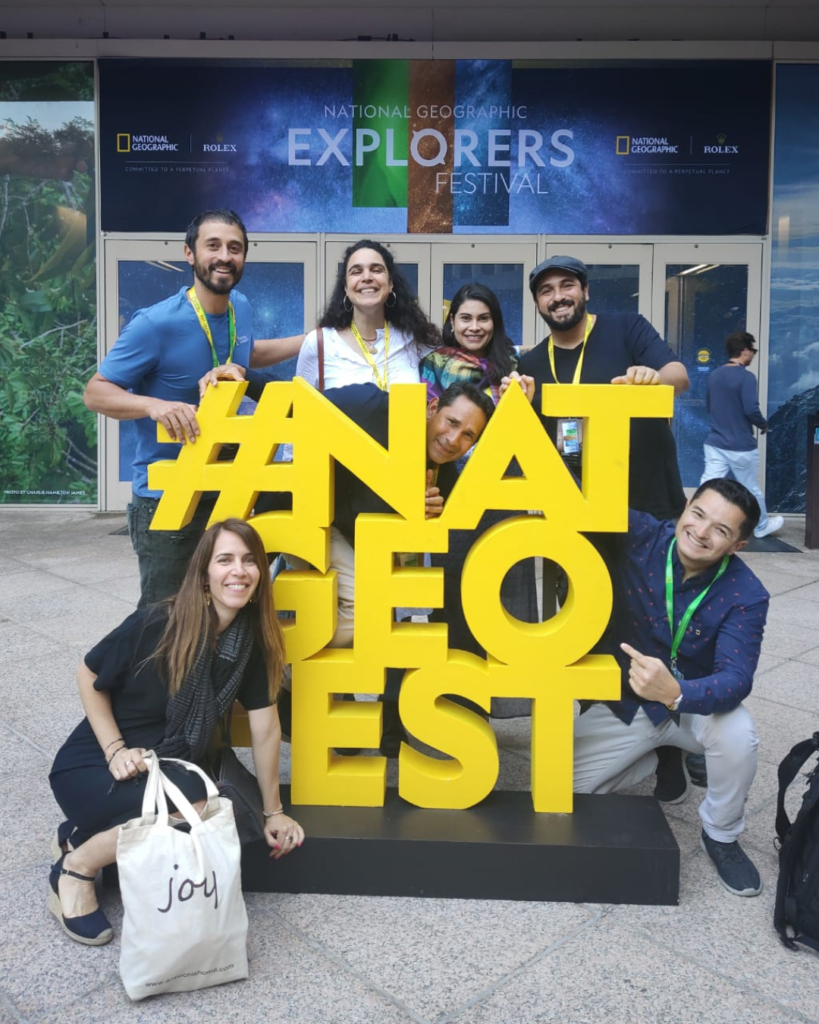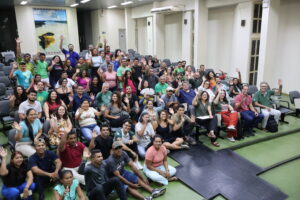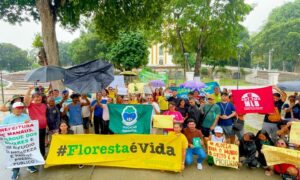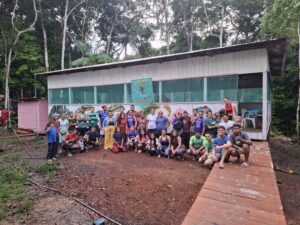Instituto Juruá was represented by João Vitor Campos-Silva at the launch of the Perpetual Planet Amazon Expedition program in the United States
By Clara Machado
National Geographic Explorers are people who excel in their fields and are driven by the difference they want to see in the world. They receive funding and support from the NatGeo Society to leverage their projects through science, exploration, education or storytelling.
Between June 6th and 10th, many explorers gathered in the capital of the United States, Washington D.C., to celebrate the launch of the Perpetual Planet Amazon Expedition program. Conducted by National Geographic in partnership with Rolex, the program supports scientific expeditions that will cover the entire Amazon basin, from the Andes to the Atlantic Ocean, contemplating different areas of knowledge. João Vitor Campos-Silva, president of Instituto Juruá, was at the festival as an “explorer.” The project River Guardians, supported by the National Geographic and Rolex initiative, is already being developed in Mid-Juruá, where a group of researchers are conducting interviews to reconstruct the history of the Amazon aquatic megafauna animal populations, through local ecological knowledge. This project aims to investigate changes in habitat and migratory conditions of aquatic wildlife in the Amazon River basin and to design the first ever community-based basin-wide conservation model.

In his speech, João reaffirmed the importance of the protagonism of indigenous peoples and local communities in designing the future of the Amazon, where science plays a supporting and guiding role. The president and researcher of Instituto Juruá was accompanied by other explorers, Angelo Bernardino, a Brazilian oceanographer who works in the mangroves at the mouth of the Amazon River evaluating changes in their capacity for carbon sequestration, and Colombian geologist Jennifer Amaya, who will conduct, for the first time in the Amazon, an evaluation of the production of carbon and mercury in mining ponds, and its subsequent impacts on water flow paths in the region.
Representing Amazonia and the Mid-Juruá in an event with people engaged with the future of the planet, coming from different regions of the world, encourages the Instituto Juruá activities and reaffirms the certainty that, in the words of João Campos-Silva “the future is ancestral”.






